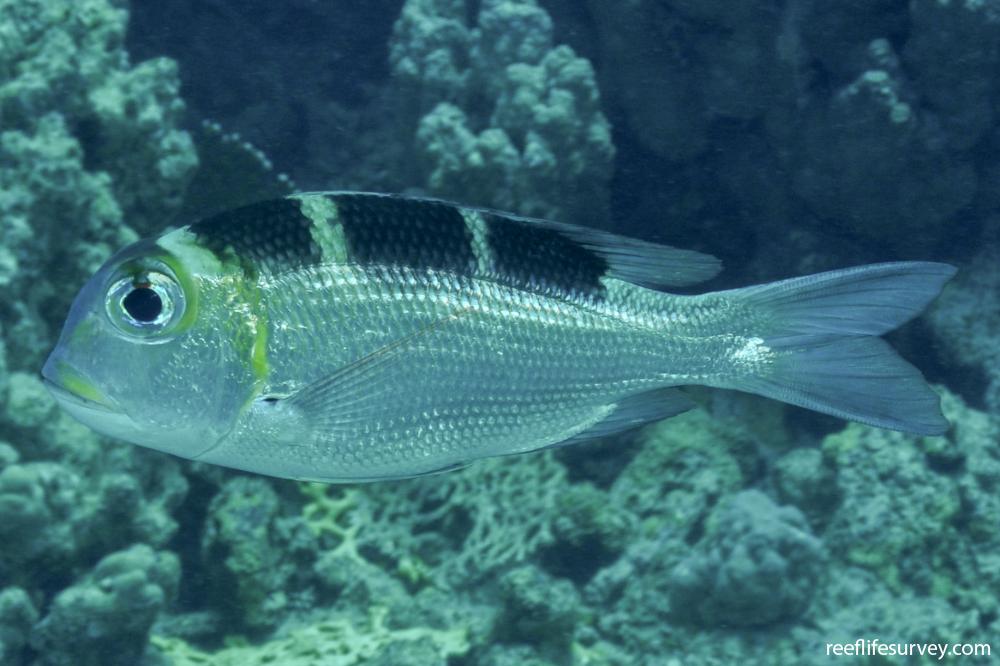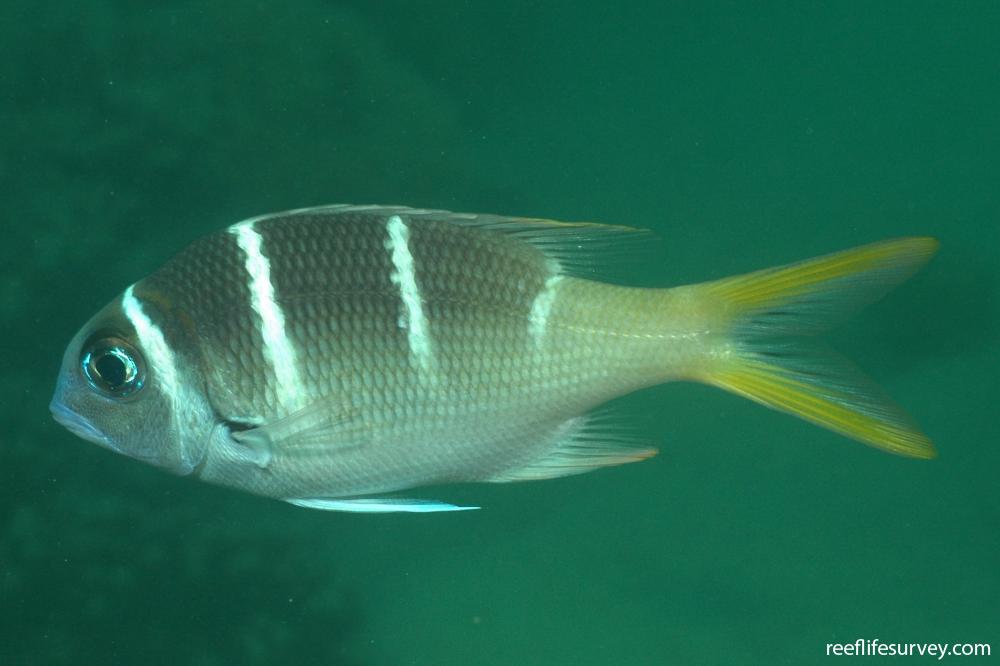Monotaxis grandoculis
Big-eye emperor | Bigeye Barenose | Bigeye Bream | Bigeye Emperor | Grand-eyed Porgy Fish | Humpnose Big-eye Bream | Humpnose Sea-bream | Large-eye Bream | Large-eyed Sea Bream | Roundtooth Large-eye BreamSimilar Species
Same Genus
Distribution
Tropical Indo-Pacific
Description
Fully grown adults with large rounded head, thick lips, silver grey body with dark scale margins, fins with red margins. Juveniles with dark upper body that fades and contracts upward with age, crossed by three or four white bars that are wider than on Monotaxis heterodon (Redfin Emperor) and a yellow tail. Large adults rarely seen, usually observed as an intermediate stage with some black on back and visible white bars.
Information
Max Size: 60 cm
Sea Temperature Range: 23-31.3°C
Depth: 1-100 m
Habitat Generalization Index: 21.68
Also referred to as the SGI (Species Generalisation Index), this describes the habitat niche breadth of the species. Species with values less than 15 are found in a relatively narrow range of reef habitat types (specialists), while those over 25 may be found on most hard substrates within their range (generalists). Learn more here.
Conservation and Rarity
IUCN Status: Least Concern
Occurrence: Common (29.2% of sites)
Occurrence describes how often the species is found on surveys within its distribution. It is calculated as the % of reef sites surveyed by RLS divers across all the ecoregions in which the species has been observed
Abundance: Few (4 per transect)
Abundance is calculated as the average number of individuals recorded per RLS transect, where present.
Edit by: RD Stuart-Smith, GJ Edgar, AJ Green, IV Shaw. 2015. Tropical Marine Fishes of Australia. Reed New Holland










